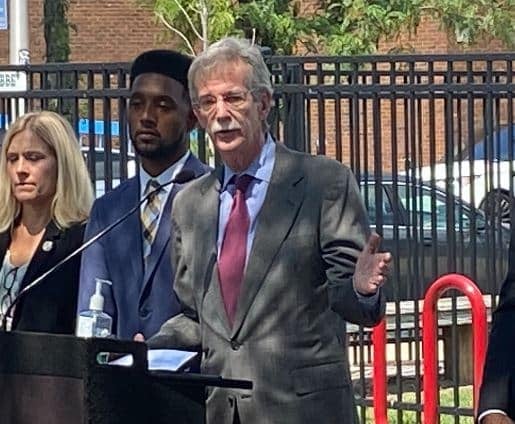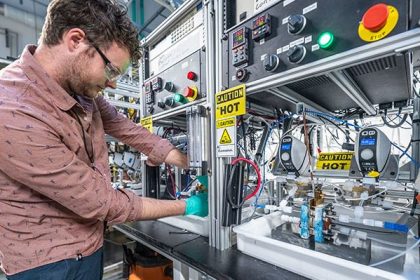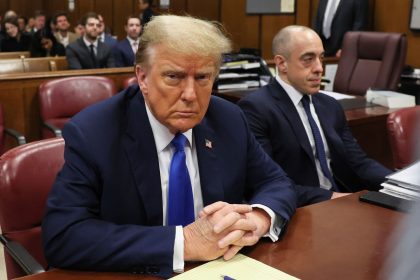Maryland Reviews In-Custody Deaths After Suspicions About Cover-Ups

BALTIMORE — Maryland’s attorney general is ordering an audit of autopsies of people who died in law enforcement custody after a panel of experts determined the lab reports might have been tainted by political favoritism.
The review will cover 100 autopsies in Maryland between 2002 and 2019, when David Fowler was chief medical examiner.
Fowler was a key witness for former Minneapolis police officer Derek Chauvin, who was convicted last year of murder and manslaughter in the death of George Floyd during a street confrontation. Video of Chauvin kneeling on Floyd’s neck until he was dead touched off protests nationwide.
Fowler testified that Floyd’s preexisting heart and drug abuse problems were more to blame for his death than Chauvin strangling him with his knee on his neck for nine minutes.
On Monday, a police officer who held Floyd’s back as he struggled to breathe pleaded guilty to a lesser charge in a deal with prosecutors.
J. Alexander Kueng pleaded guilty to aiding and abetting second-degree manslaughter just as jury selection was set to begin. He would have faced a charge of aiding and abetting second-degree unintentional murder if the case proceeded to trial.
Chauvin is serving a 22 ½–year prison sentence, despite Fowler’s testimony that tended to exonerate him.
In Maryland, Attorney General Brian E. Frosh and several medical experts afterward questioned whether Fowler’s other conclusions about what appeared to be natural deaths of prisoners might have represented an effort to cover up violence against them.
“We embarked on this process with the goal of overseeing a professional and independent audit that adheres to the highest standards of impartiality and integrity,” Frosh said in a statement.
An independent panel already has reviewed 1,300 in-custody deaths. They included people who committed suicide or overdosed in jail and persons who died during police chases.
The new audit will focus on 100 deaths the panel says in a 12-page report need a closer review because they “occurred during or shortly after the decedent was physically restrained, and for which no obvious medical cause of death, such as a knife wound, was discerned during the autopsy.”
A National Association of Medical Examiners guide says deaths are distinguished as natural or non-natural based on the “but-for” principle. It means a person might have lived “but-for” an intervening cause of death.
“While there may be debate about how much certainty is required to reach a finding of homicide in a restraint death case, there can be no debate that the threshold should be the same regardless of the race of the decedent or the identity of the person or persons applying the restraint,” the report said.
Fowler claims no wrongdoing as Maryland’s chief medical examiner. The American Civil Liberties Union of Maryland supports the new audit.
Tom can be reached at [email protected] and @TomRamstack






















